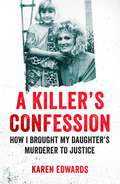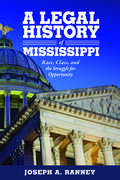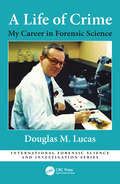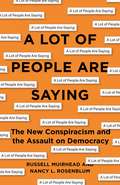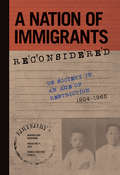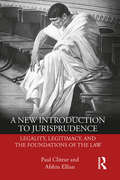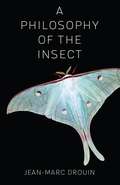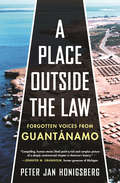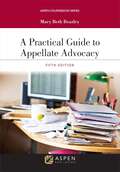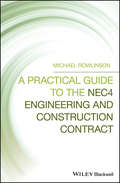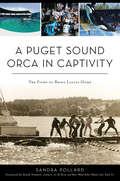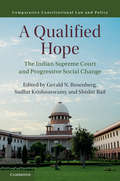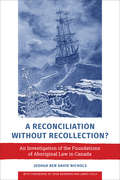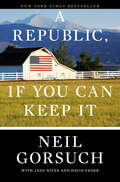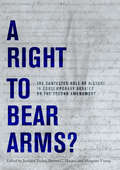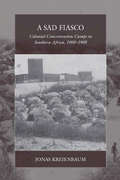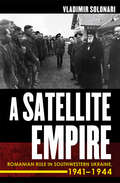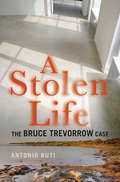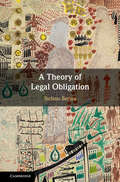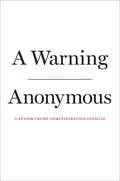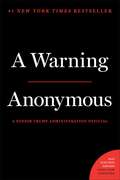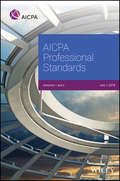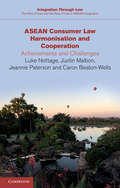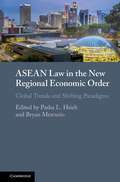- Table View
- List View
A Killer's Confession: How I Brought My Daughter's Murderer to Justice
by Karen EdwardsA mother's fight to bring her daughter's killer, Christopher Halliwell, to justice'I have lived every parent's worst nightmare. On what would have been my daughter's 29th birthday, Detective Superintendent Stephen Fulcher knocked on the door and told me my beautiful Becky was dead. Found buried in a shallow grave in a remote field, Becky had been brutally murdered.'When Becky Godden-Edwards was killed, her mother Karen awoke to a world where the truth was never guaranteed; where taxi driver Christopher Halliwell got away with murder and the police officer who found her daughter was punished instead. This is Karen's story. Despite unimaginable tragedy, her love for her daughter has been unbreakable: from her despair through Becky's troubled teenage years, to the agonising eight years when Becky was missing, and then the dramatic story of how a killer's confession led to a terrible discovery. The one constant has been Karen's determination to fight for Becky, tirelessly campaigning for the truth about what happened to be heard and for Halliwell to face the consequences of his evil actions. *The murders of Becky Godden-Edwards and Sian O'Callaghan will soon be the focus of major new ITV series A Confession starring Martin Freeman as Stephen Fulcher and Imelda Staunton as Karen Edwards*
A Killer's Confession: How I Brought My Daughter's Murderer to Justice
by Karen EdwardsA mother's fight to bring her daughter's killer, Christopher Halliwell, to justice'I have lived every parent's worst nightmare. On what would have been my daughter's 29th birthday, Detective Superintendent Stephen Fulcher knocked on the door and told me my beautiful Becky was dead. Found buried in a shallow grave in a remote field, Becky had been brutally murdered.'When Becky Godden-Edwards was killed, her mother Karen awoke to a world where the truth was never guaranteed; where taxi driver Christopher Halliwell got away with murder and the police officer who found her daughter was punished instead. This is Karen's story. Despite unimaginable tragedy, her love for her daughter has been unbreakable: from her despair through Becky's troubled teenage years, to the agonising eight years when Becky was missing, and then the dramatic story of how a killer's confession led to a terrible discovery. The one constant has been Karen's determination to fight for Becky, tirelessly campaigning for the truth about what happened to be heard and for Halliwell to face the consequences of his evil actions. *The murders of Becky Godden-Edwards and Sian O'Callaghan will soon be the focus of major new ITV series A Confession starring Martin Freeman as Stephen Fulcher and Imelda Staunton as Karen Edwards*
A Legal History of Mississippi: Race, Class, and the Struggle for Opportunity
by Joseph A. RanneyIn A Legal History of Mississippi: Race, Class, and the Struggle for Opportunity, legal scholar Joseph A. Ranney surveys the evolution of Mississippi’s legal system and analyzes the ways in which that system has changed during the state’s first two hundred years. Through close research, qualitative analysis, published court decisions, statutes, and law review articles, along with unusual secondary sources including nineteenth-century political and legal journals and journals of state constitutional conventions, Ranney indicates how Mississippi law has both shaped and reflected the state’s character and, to a certain extent, how Mississippi’s legal evolution compares with that of other states.Ranney examines the interaction of Mississippi law and society during key periods of change including the colonial and territorial eras and the early years of statehood when the legal foundations were laid; the evolution of slavery and slave law in Mississippi; the state’s antebellum role as a leader of Jacksonian legal reform; the unfolding of the response to emancipation and wartime devastation during Reconstruction and the early Jim Crow era; Mississippi’s legal evolution during the Progressive Era and its legal response to the crisis of the Great Depression; and the legal response to the civil rights revolution of the mid-twentieth century and the cultural revolutions of the late twentieth century. Histories of the law in other states are starting to appear, but there is none for Mississippi. Ranney fills that gap to help us better understand the state as it enters its third century.
A Life of Crime: My Career in Forensic Science (International Forensic Science and Investigation)
by Douglas LucasA Life of Crime: My Career in Forensic Science chronicles the career and experiences of world-renowned forensic scientist, Dr. Douglas Lucas. It is the culmination of his decades-worth of work in the field, developing innovative techniques that have revolutionized several aspects of forensic science. It is part professional reference, part career guide, part instructive reference for students wishing to entering the to enter the field, and wholly autobiographical. Dr. Lucas chronicles a number of the high-profile cases he’s worked on firsthand. This includes both the logistical problem-solving of case management—how to process and handle the evidence—in addition to the testing, analysis and processes he went through, and developed, along the way. Such cases include mass disaster plane crashes, arson, IEDs and explosives, poisonings, missing persons, and homicides, to name just a few. Dr. Lucas has encountered and seen just about everything a forensic professional can see. In addition to the in-depth discussion, development, and philosophy of forensic science as a discipline, the book also discusses the balance of personal and professional life. This is a vital, but little thought of aspect that becomes a conspicuous reality of working in the field: namely, delving into the science, and dealing with those personal emotions, work conflicts, and ethical conundrums that a professional regularly encounters. Forensic professionals, investigators, and students—regardless of background or discipline—will find this a fascinating look "behind the curtain" at one of the most decorated, innovative, and respected members of the field over the last 50 years.
A Lot of People Are Saying: The New Conspiracism and the Assault on Democracy
by Nancy L. Rosenblum Russell MuirheadHow the new conspiracists are undermining democracy—and what can be done about itConspiracy theories are as old as politics. But conspiracists today have introduced something new—conspiracy without theory. And the new conspiracism has moved from the fringes to the heart of government with the election of Donald Trump. In A Lot of People Are Saying, Russell Muirhead and Nancy Rosenblum show how the new conspiracism differs from classic conspiracy theory, why so few officials speak truth to conspiracy, and what needs to be done to resist it.Classic conspiracy theory insists that things are not what they seem and gathers evidence—especially facts ominously withheld by official sources—to tease out secret machinations. The new conspiracism is different. There is no demand for evidence, no dots revealed to form a pattern, no close examination of shadowy plotters. Dispensing with the burden of explanation, the new conspiracism imposes its own reality through repetition (exemplified by the Trump catchphrase “a lot of people are saying”) and bare assertion (“rigged!”).The new conspiracism targets democratic foundations—political parties and knowledge-producing institutions. It makes it more difficult to argue, persuade, negotiate, compromise, and even to disagree. Ultimately, it delegitimates democracy.Filled with vivid examples, A Lot of People Are Saying diagnoses a defining and disorienting feature of today’s politics and offers a guide to responding to the threat.
A Nation of Immigrants Reconsidered: US Society in an Age of Restriction, 1924-1965 (Studies of World Migrations #21)
by Maddalena Marinari Madeline Hsu Maria Cristina GarciaScholars, journalists, and policymakers have long argued that the 1965 Immigration and Nationality Act dramatically reshaped the demographic composition of the United States. In A Nation of Immigrants Reconsidered, leading scholars of immigration explore how the political and ideological struggles of the so-called "age of restriction"--from 1924 to 1965--paved the way for the changes to come. The essays examine how geopolitics, civil rights, perceptions of America's role as a humanitarian sanctuary, and economic priorities led government officials to facilitate the entrance of specific immigrant groups, thereby establishing the legal precedents for future policies. Eye-opening articles discuss Japanese war brides and changing views of miscegenation, the recruitment of former Nazi scientists, a temporary workers program with Japanese immigrants, the emotional separation of Mexican immigrant families, Puerto Rican youth's efforts to claim an American identity, and the restaurant raids of conscripted Chinese sailors during World War II. Contributors: Eiichiro Azuma, David Cook-Martín, David FitzGerald, Monique Laney, Heather Lee, Kathleen López, Laura Madokoro, Ronald L. Mize, Arissa H. Oh, Ana Elizabeth Rosas, Lorrin Thomas, Ruth Ellen Wasem, and Elliott Young.
A New Introduction to Jurisprudence: Legality, Legitimacy and the Foundations of the Law
by Paul Cliteur Afshin EllianA New Introduction to Jurisprudence takes one of the central problems of law and jurisprudence as its point of departure: what is the law? Adopting an intermediate position between legal positivism and natural law, this book reflects on the concept of ‘liberal democracy’ or ‘constitutional democracy’. In five chapters the book analyses: (i) the idea of higher law, (ii) liberal democracy as a legitimate model for the state, (iii) the separation of church and state or secularism as essential for the democratic state, (iv) the universality of higher law principles, (v) the history of modern political thought. This interdisciplinary approach to jurisprudence is relevant for legal scholars, philosophers, political theorists, public intellectuals, historians, and politicians.
A Philosophy of the Insect
by Jean-Marc DrouinThe world of insects is at once beneath our feet and unfathomably alien. Small and innumerable, insects surround and disrupt us even as we scarcely pay them any mind. Insects confront us with the limits of what is imaginable, while at the same time being essential to the everyday functioning of all terrestrial ecosystems.In this book, the philosopher and historian of science Jean-Marc Drouin contends that insects pose a fundamental challenge to philosophy. Exploring the questions of what insects are and what scientific, aesthetic, ethical, and historical relationships they have with humanity, he argues that they force us to reconsider our ideas of the animal and the social. He traces the role that insects have played in language, mythology, literature, entomology, sociobiology, and taxonomy over the centuries. Drouin emphasizes the links between humanistic and scientific approaches—how we have projected human roles onto insects and seen ourselves in insect form. Caught between the animal and plant kingdoms, insects force us to confront and reevaluate our notions of gender, family, society, struggle, the division of labor, social organization, and individual and collective intelligence. A remarkably original and thought-provoking work, A Philosophy of the Insect is an important book for animal studies, environmental ethics, and the history and philosophy of science.
A Place Outside the Law: Forgotten Voices from Guantanamo
by Peter Jan HonigsbergFirsthand testimonies from Guantánamo Bay, inspiring future generations to never repeat the human rights violations of the detention center.Law scholar and Witness to Guantánamo founder Peter Jan Honigsberg uncovers a haunting portrait of life at the military prison and its toll, not only on the detainees and their loved ones but also on its military and civilian personnel and the journalists who reported on it.Honigsberg conducted 158 interviews across 20 countries so that the people who lived and worked there could tell their heartbreaking and inspirational stories. In each one, we face the reality that the healing process cannot begin until we start the conversation about what was done in the name of protecting our country. These are a few of them. Many alleged operatives in Guantánamo were purchased by the United States for ransom from Afghan and Pakistani soldiers. Brandon Neely, a prison guard who processed the first group of suspected operatives to arrive in Cuba, flew to London to embrace the detainees he guarded after leaving the military. Navy whistleblower Matt Diaz covertly released the names of 500 detainees by sending them in a greeting card to a lawyer in New York. Journalist Carol Rosenberg committed the past 17 years of her career to documenting life at Guantánamo. And Damien Corsetti, an interrogator who came to be known as the "King of Torture," received ribbons and awards for the same cruel actions for which he was later prosecuted. In startling, aching prose, A Place Outside the Law shines a light on these unheard voices, and through them, encourages the global community to embrace humanity as our greatest tool to make the world a safer place.
A Practical Guide to Appellate Advocacy
by Mary Beth BeazleyMary Beth Beazley’s highly regarded A Practical Guide to Appellate Advocacy is a comprehensive student-focused guide to writing appellate briefs. Written in an understandable, direct writing style, this concise paperback’s effective structure centers on a four-point approach to writing and breaks each point down into key elements that are then treated in-depth.
A Practical Guide to the NEC4 Engineering and Construction Contract
by Michael RowlinsonProvides construction industry professionals with a practical and detailed guide to the NEC4 contract The NEC contract takes a collaborative, project management based approach to construction projects, which is very different to the other standard forms of construction contract. This new edition of the book covers all changes in the 4th Edition of the Engineering and Construction Contract, issued in June 2017, and will provide practical guidance to help users transitioning from NEC3 to NEC4. Inside A Practical Guide to the NEC4 Engineering and Construction Contract, readers will find chapters on the background of the NECECC; contract data and other documents; the‘spirit of mutual trust’; all of the individuals involved in the process (eg: project managers, clients, supervisors, subcontractors, etc.); communication issues, early warnings and other matters; quality management; titles; dealing with timing; payment processes; cost components; compensation procedures and assessments; dealing with terminations; dispute resolution; completing the contract and more. A practical guide to the application of the procedures contained in the newly issued NEC4 Engineering and Construction Contract Provides detailed guidance on the use of the agreement, which is claimed to offer increased flexibility, improved clarity and greater ease of use Written specifically for people actually using and administering the NEC contracts Features 3 appendixes covering tables of clause numbers, case law and statutes; employer’s, project manager’s, supervisor’s, contractor’s and adjudicator’s actions; and communication forms and their uses. First launched in 1993, the NEC has become one of the UK's leading standard forms of contract for major construction and civil engineering projects, making A Practical Guide to the NEC4 Engineering and Construction Contract a must-have resource for any contractor using the latest version of this contract.
A Puget Sound Orca in Captivity: The Fight To Bring Lolita Home
by David Neiwert Sandra PollardOn August 8, 1970, the Southern Resident orcas of Puget Sound were herded into Penn Cove on Whidbey Island by explosives, spotter planes and speedboats in a coordinated effort to capture seven young whales. Between 1964 and 1976, dozens of these now-endangered orcas were torn from their home and sent to marine parks around the globe. Just over a decade later, all but one had died. This lone survivor is Tokitae, also known as Lolita, and she's spent most of her life performing at the Miami Seaquarium. For twenty years, the Orca Network has called for her release, and now the indigenous Lummi Nation, People of the Sea, have joined the fight. Author Sandra Pollard chronicles the extraordinary effort to bring Tokitae home.
A Qualified Hope: The Indian Supreme Court and Progressive Social Change (Comparative Constitutional Law and Policy)
by Gerald N. Rosenberg Sudhir Krishnaswamy Shishir BailThe Indian Supreme Court is widely seen as a vanguard of progressive social change. Yet there are no systematic studies of whether its progressive decisions actually improve the lives of the relatively disadvantaged. This book presents the first collection of original empirical studies on the impact of the Indian Supreme Court's most progressive decisions. Combining original datasets with in-depth qualitative research, the chapters provide a rigorous examination of the conditions under which judicial decisions can make a difference to those in need. These studies reveal that the Indian Supreme Court, like its US counterpart, is largely constrained in its efforts. Yet, through the broad sweep of constitutional rights in the Indian Constitution, the Court's procedural innovations, and its institutional independence, the Indian Supreme Court can sometimes make a difference - in the lives of those most in need.
A Reconciliation without Recollection?: An Investigation of the Foundations of Aboriginal Law in Canada (G - Reference, Information And Interdisciplinary Subjects Ser.)
by Joshua Ben NicholsThe current framework for reconciliation between Indigenous peoples and the Canadian state is based on the Supreme Court of Canada’s acceptance of the Crown’s assertion of sovereignty, legislative power, and underlying title. The basis of this assertion is a long-standing interpretation of Section 91(24) of Canada’s Constitution, which reads it as a plenary grant of power over Indigenous communities and their lands, leading the courts to simply bypass the question of the inherent right of self-government. In A Reconciliation without Recollection, Joshua Ben David Nichols argues that if we are to find a meaningful path toward reconciliation, we will need to address the history of sovereignty without assuming its foundations. Exposing the limitations of the current model, Nichols carefully examines the lines of descent and association that underlie the legal conceptualization of the Aboriginal right to govern. Blending legal analysis with insights drawn from political theory and philosophy, A Reconciliation without Recollection is an ambitious and timely intervention into one of the most pressing concerns in Canada.
A Republic, If You Can Keep It
by Neil GorsuchJustice Neil Gorsuch reflects on his journey to the Supreme Court, the role of the judge under our Constitution, and the vital responsibility of each American to keep our republic strong. <P><P>As Benjamin Franklin left the Constitutional Convention, he was reportedly asked what kind of government the founders would propose. He replied, “A republic, if you can keep it.” <P><P>In this book, Justice Neil Gorsuch shares personal reflections, speeches, and essays that focus on the remarkable gift the framers left us in the Constitution. Justice Gorsuch draws on his thirty-year career as a lawyer, teacher, judge, and justice to explore essential aspects our Constitution, its separation of powers, and the liberties it is designed to protect. <P><P>He discusses the role of the judge in our constitutional order, and why he believes that originalism and textualism are the surest guides to interpreting our nation’s founding documents and protecting our freedoms. He explains, too, the importance of affordable access to the courts in realizing the promise of equal justice under law—while highlighting some of the challenges we face on this front today. <P><P>Along the way, Justice Gorsuch reveals some of the events that have shaped his life and outlook, from his upbringing in Colorado to his Supreme Court confirmation process. And he emphasizes the pivotal roles of civic education, civil discourse, and mutual respect in maintaining a healthy republic. <P><P>A Republic, If You Can Keep It offers compelling insights into Justice Gorsuch’s faith in America and its founding documents, his thoughts on our Constitution’s design and the judge’s place within it, and his beliefs about the responsibility each of us shares to sustain our distinctive republic of, by, and for “We the People.” <P><P><b>A New York Times Bestseller</b>
A Right to Bear Arms?: The Contested Role of History in Contemporary Debates on the Second Amendment
by Barton C. Hacker Jennifer Tucker Margaret ViningThis collection of essays explores the way history itself has become a contested element within the national legal debate about firearms. The debate over the Second Amendment has unveiled new and useful information about the history of guns and their possession and meaning in the United States of America. History itself has become contested ground in the debate about firearms and in the interpretation of the Second Amendment to the Constitution of the United States. Specifically this collection of essays gives special attention to the important and often overlooked dimension of the applications of history in the law. These essays illustrate the complexity of the firearms debate, the relation between law and behavior, and the role that historical knowledge plays in contemporary debates over law and policy. Wide-ranging and stimulating The Right to Bear Arms is bound to captivate both historians and casual readers alike.
A Sad Fiasco: Colonial Concentration Camps in Southern Africa, 1900–1908 (War and Genocide #29)
by Jonas KreienbaumOnly in recent years has the history of European colonial concentration camps in Africa—in which thousands of prisoners died in appalling conditions—become widely known beyond a handful of specialists. Although they preceded the Third Reich by many decades, the camps’ newfound notoriety has led many to ask to what extent they anticipated the horrors of the Holocaust. Were they designed for mass killing, a misbegotten attempt at modernization, or something else entirely? A Sad Fiasco confronts this difficult question head-on, reconstructing the actions of colonial officials in both British South Africa and German South-West Africa as well as the experiences of internees to explore both the similarities and the divergences between the African camps and their Nazi-era successors.
A Satellite Empire: Romanian Rule in Southwestern Ukraine, 1941–1944
by Vladimir SolonariSatellite Empire is an in-depth investigation of the political and social history of the area in southwestern Ukraine under Romanian occupation during World War II. Transnistria was the only occupied Soviet territory administered by a power other than Nazi Germany, a reward for Romanian participation in Operation Barbarossa.Vladimir Solonari's invaluable contribution to World War II history focuses on three main aspects of Romanian rule of Transnistria: with fascinating insights from recently opened archives, Solonari examines the conquest and delimitation of the region, the Romanian administration of the new territory, and how locals responded to the occupation. What did Romania want from the conquest? The first section of the book analyzes Romanian policy aims and its participation in the invasion of the USSR. Solonari then traces how Romanian administrators attempted, in contradictory and inconsistent ways, to make Transnistria "Romanian" and "civilized" while simultaneously using it as a dumping ground for 150,000 Jews and 20,000 Roma deported from a racially cleansed Romania. The author shows that the imperatives of total war eventually prioritized economic exploitation of the region over any other aims the Romanians may have had. In the final section, he uncovers local responses in terms of collaboration and resistance, in particular exploring relationships with the local Christian population, which initially welcomed the occupiers as liberators from Soviet oppression but eventually became hostile to them. Ever increasing hostility towards the occupying regime buoyed the numbers and efficacy of pro-Soviet resistance groups.
A Stolen Life: The Bruce Trevorrow Case
by Antonio ButiOn Christmas Day 1957, Joe Trevorrow walked through the blisteringheat to seek help for his sick baby boy. When relatives agreed to takeBruce to hospital, Joe was relieved — his son was in safe hands — but,within days, Bruce would be living with another family, and Joe wouldnever see his son again. At the age of ten, Bruce would be returned tohis Indigenous family, sparking a lifelong search for an identity thatcould never truly be known and a court case that made history.
A Theory of Legal Obligation
by Stefano BerteaThe focus of this monograph lies in the construction of a theory of legal obligation, understanding it as a discrete notion with its own defining traits. In this work, Bertea specifically addresses the question: how should legal obligation be distinctively conceptualized? The conceptualization of legal obligation he defends in this work gradually emerges from a critical assessment of the theories of legal obligation that have been most influential in the contemporary legal-theoretical debate. Building on such critical analysis, Bertea's study purports to offer a novel and unconventional conceptualization of legal obligation, which is characterized as a law-engendered intersubjective reason for carrying out certain courses of conduct.
A Warning: Or An Answer To The Speech Of Mr. Secretary Fox, Upon East-india Affairs, On The 18th Of November, 1783 (1783)
by AnonymousAn unprecedented behind-the-scenes portrait of the Trump presidency from the anonymous senior official whose first words of warning about the president rocked the nation's capital.On September 5, 2018, the New York Times published a bombshell essay and took the rare step of granting its writer anonymity. Described only as "a senior official in the Trump administration," the author provided eyewitness insight into White House chaos, administration instability, and the people working to keep Donald Trump's reckless impulses in check.With the 2020 election on the horizon, Anonymous is speaking out once again. In this book, the original author pulls back the curtain even further, offering a first-of-its-kind look at the president and his record -- a must-read before Election Day. It will surprise and challenge both Democrats and Republicans, motivate them to consider how we judge our nation's leaders, and illuminate the consequences of re-electing a commander in chief unfit for the role.This book is a sobering assessment of the man in the Oval Office and a warning about something even more important -- who we are as a people.
A Warning: Or An Answer To The Speech Of Mr. Secretary Fox, Upon East-india Affairs, On The 18th Of November, 1783 (1783)
by AnonymousAn unprecedented behind-the-scenes portrait of the Trump presidency from the anonymous senior official whose first words of warning about the president rocked the nation's capital. <P><P>On September 5, 2018, the New York Times published a bombshell essay and took the rare step of granting its writer anonymity. Described only as "a senior official in the Trump administration," the author provided eyewitness insight into White House chaos, administration instability, and the people working to keep Donald Trump's reckless impulses in check. <P><P>With the 2020 election on the horizon, Anonymous is speaking out once again. In this book, the original author pulls back the curtain even further, offering a first-of-its-kind look at the president and his record -- a must-read before Election Day. <P><P>It will surprise and challenge both Democrats and Republicans, motivate them to consider how we judge our nation's leaders, and illuminate the consequences of re-electing a commander in chief unfit for the role. <P><P>This book is a sobering assessment of the man in the Oval Office and a warning about something even more important -- who we are as a people. <P><P><b>A New York Times bestseller</b>
AICPA Professional Standards 2019, Volumes 1 and 2: Cch#04585404 (AICPA)
by AICPAUpdated as of July 1, 2019, this two-volume set is a comprehensive source of professional standards and interpretations issued by the AICPA, such as auditing and attestation, accounting and review services pronouncements, along with the AICPA Code of Professional Conduct and Bylaws. Standards and related interpretations, to help you apply the standards in specific circumstances, are arranged by subject with amendments noted, superseded portions deleted, and conforming changes reflected. New to this edition: Statement on Auditing Standards (SAS) No. 134, Auditor Reporting and Amendments, Including Amendments Addressing Disclosures in the Audit of Financial Statements SAS No. 135, Omnibus Statement on Auditing Standards—2019 SAS No. 136, Forming an Opinion and Reporting on Financial Statements of Employee Benefit Plans Subject to ERISA SAS No. 137, The Auditor's Responsibilities Relating to Other Information Included in Annual Reports Statement on Standards for Forensic Services No. 1, Statement on Standards for Forensic Services
ASEAN Consumer Law Harmonisation and Cooperation: Achievements and Challenges (Integration through Law:The Role of Law and the Rule of Law in ASEAN Integration #18)
by Caron Beaton-Wells Justin Malbon Luke Nottage Jeannie PatersonThis is the first Western-language research monograph detailing significant developments in consumer law and policy across the Association of Southeast Asian Nations (ASEAN), underpinned by a growing middle class and implementation of the ASEAN Economic Community from 2016. Eight chapters examine consumer law topics within ASEAN member states (such as product safety and consumer contracts) and across them (financial and health services), as well as the interface with competition law and the nature of ASEAN as a unique and evolving international organisation. The authors include insights from extensive fieldwork, partly through consultancies for the ASEAN Secretariat, to provide a reliable, contextual and up-to-date analysis of consumer law and policy development across the region. The volume also draws on and contributes to theories of law and development in multiple fields, including comparative law, political economy and regional studies.
ASEAN Law in the New Regional Economic Order: Global Trends and Shifting Paradigms
by Bryan Mercurio Pasha L. HsiehThe fast-growing last decade of strong economic growth of the Association of Southeast Asian Nations (ASEAN) has played a critical role in Asia-Pacific regionalism and global trade. This book explores the concept of ASEAN law under the normative framework of the new regional economic order. It examines the roadmap of the new ASEAN Economic Community Blueprint 2025 by evaluating the impact of ASEAN trade agreements on domestic legislation on professional services, financial integration, investment disputes and digital trade. More importantly, it sheds light on the legal implications of ASEAN's agreements with China and India and the potential developments of mega-regional trade agreements such as the CPTPP and the RCEP. Hence, the legal analysis and case studies in the book offer a fresh view of Asia-Pacific integration and bridge the gap between academia and practice.
